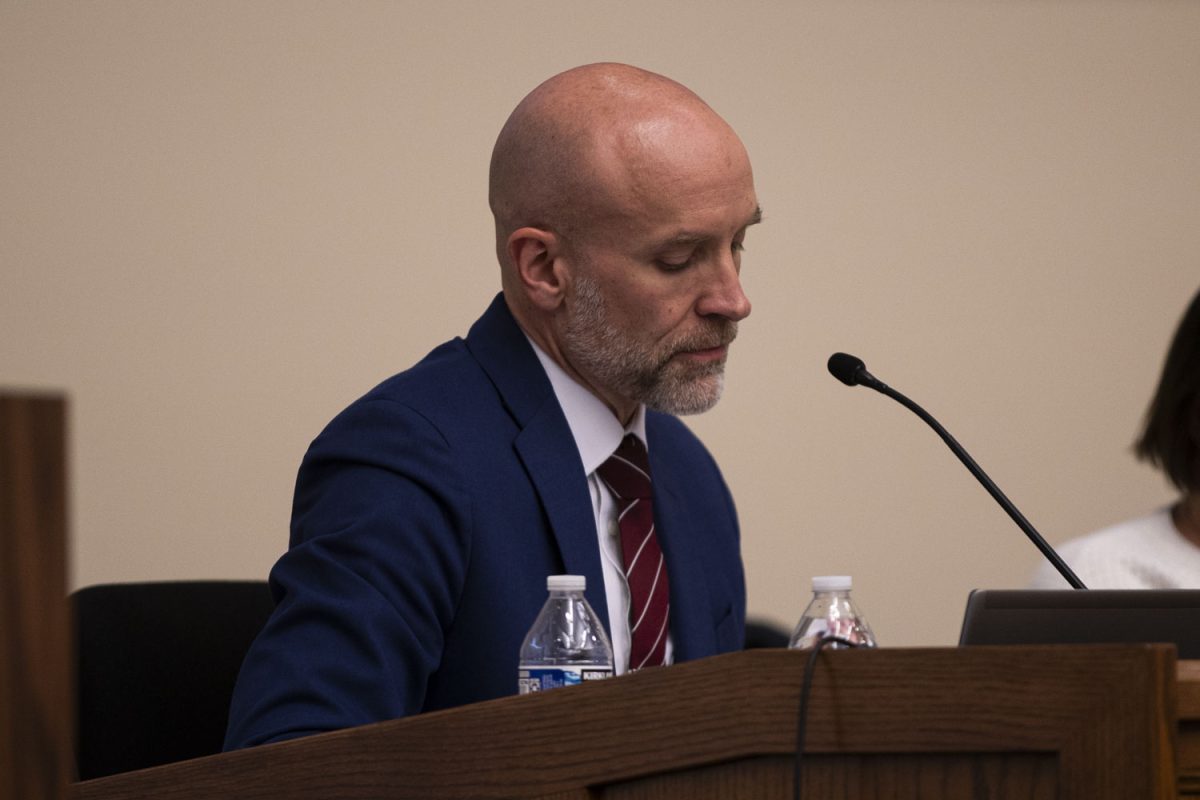Goodbye germs.
Professors in the UI Carver College of Medicine and the computer-science department of recently teamed up to create a tracking system that would monitor whether health-care professionals sanitize their hands.
“It’s really incredible,” said Alberto Maria Segre, a computer-science professor, who helped lead the study. “Our application of this technology to [the] hand-washing problem is new and different.”
The application uses wireless technology to track heath professionals’ hygiene. It’s being tested now at the UI Hospitals and Clinics, and it uses three parts to aggregate the data.
The first — a badge outfitted with a wireless signal — would be worn on the health-care professional. This would receive information from a signal on a sanitizer dispenser and another device in the patient’s room.
“All three of these components ‘talk,’ ” said Philip Polgreen, a UI assistant professor of infectious diseases. “They talk to each other in a wireless fashion.”
By examining data recorded by the wireless components, researchers can tell, for instance, whether a doctor sanitizes her or his hands when walking into a room.
Even though the technology could change how U.S. hospitals manage infections, it’s still in the testing phase and has not been implemented anywhere.
According to the Centers for Disease Control and Prevention, 1.7 million health-care related infections occur each year.
Apart from its primary function, the technology has an added use in its ability to plot where professionals are.
“If they’re in a hallway or a patient’s room, we do this by analyzing the strength of the signals from each of the three components,” Polgreen said.
This has some concerned it violates their privacy, Segre said, but officials have the choice of keeping health care professionals anonymous.
“We don’t necessarily identify who is wearing what badge,” Segre said. “We wanted to aggregate information. We don’t need to know who’s wearing the badge to collect that information.”
Another benefit of the system is that the technology is considered green. It does not require installation like most systems that use radio frequency identification, such as typical pagers.
“Our system can be deployed quickly and taken down quickly,” Polgreen said. “It’s very portable and self-contained.”
Not everyone is aware of the new technology being tested, but many seem eager to check it out.
“I do know we need to do a good job about washing hands, and if this system will help remind us, then I think it’s a good thing,” said Joni Bosch, a UI advanced registered nurse practitioner. “I try to remember it all the time, and I suspect not everybody is remembering.”
While some are enthusiastic about the new technology, others are hesitant because it relies on sanitizer.
“We use sanitizer here,” said Wayne Tegler, an Iowa City doctor. “I feel better if I wash my hands, but they say hand sanitizer is just as good.”






